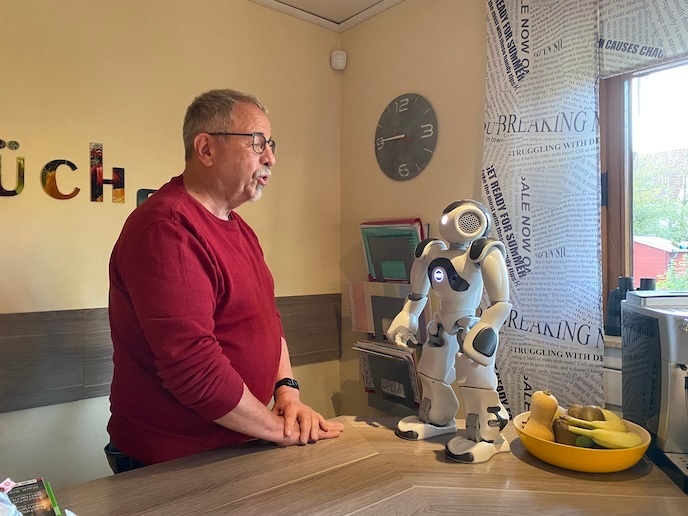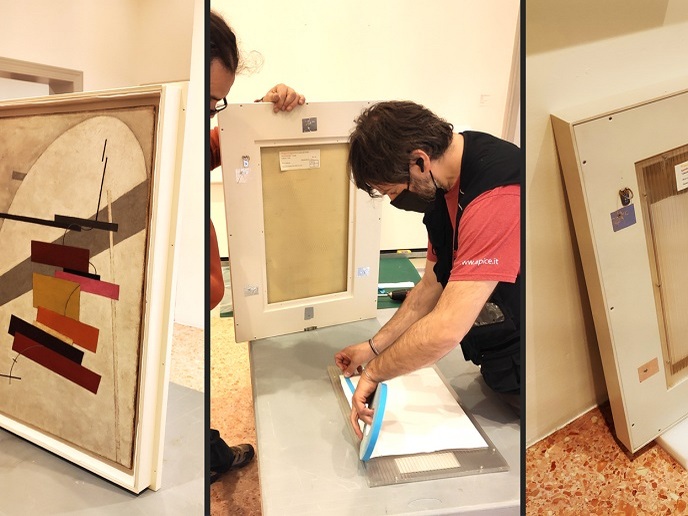Virtual coach encourages healthy independent living
People are living longer, which means that pressure on medical services for age-related treatments is increasing. To address this, the e-VITA(opens in new window) project sought to support active and healthy ageing among elderly people living independently in the community, through the innovative application of technology. “Our aim was to prevent disease progression through the early intervention of a virtual coach,” explains project coordinator Rainer Wieching from the University of Siegen(opens in new window) in Germany. “This coach would converse naturally with users at home, provide advice to fit their specific health needs, and be also sensitive to issues such as their spiritual well-being.”
Academics, AI pioneers and robotics experts
To achieve this aim, the project brought together academics and robotics experts from Europe and Japan. “We wanted our technology to be based on natural language processing,” says Wieching. “Users can talk with their devices – they don’t need to key in information.” Data was collected on a range of health-related topics, such as exercise, nutrition, sleep, and cognitive and emotional well-being. The team also took account of spirituality and religion. Cultural aspects were an important part of the team’s research and development. “We then developed APIs to connect different data-collecting devices,” adds Wieching. “This information was sent to our platform, which then connects to the virtual coach and provides opportunities for personalisation.” These virtual coaches were also seen as being complementary to teams of volunteers, researchers and welfare organisations, who would follow up with users on a regular basis in the local community.
Tech trials through Living Labs
The project’s virtual coach platform was trialled in real-life settings in four countries – France, Germany, Italy and Japan. The team used the Living Labs concept, in which end users are involved from the start, and can provide input and feedback as the project progresses. “We learned that we could not start from the technology standpoint alone,” remarks Wieching. More than 140 older adults participated. This was at times challenging, given the COVID-19 pandemic and the fact that community-dwelling older adults are harder to satisfy than a cohort of elderly people in a care home. Nonetheless, this group was able to use the e-VITA system for about 6 months, with support provided by local carers.
Reinforcing physical, cognitive and social well-being
Interviews were carried out afterwards to assess the usefulness and effectiveness of the virtual coach concept in reinforcing physical, cognitive and social well-being. Overall, the findings showed that the intervention group significantly improved in the physical, emotional and social domain against the control group in most of the study centres in Europe and Japan. An economic analysis was also carried out, which showed how improvements in prevention could lead to healthcare cost savings. Estimations were also made of how much it would cost to bring such innovations onto the market, enabling the time to calculate potential societal benefits in cost terms. “Frequent end user and stakeholder assessments also helped us to identify where improvements could be made,” notes Wieching. The project is now moving towards market exploitation. Several early adopters have been identified, and cooperation between European and Japanese partners is set to continue. “There is notable interest in our innovation from rural areas, where there is a lack of carers and medical staff,” says Wieching. “This is one area where we certainly hope to extend our virtual coach model, in both Europe and Japan.”







